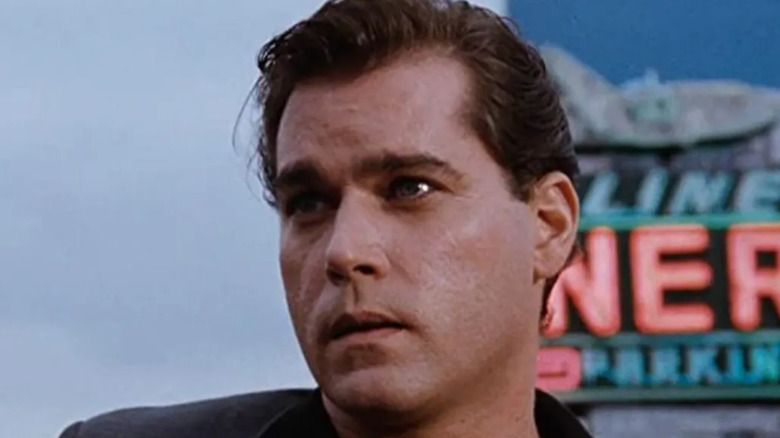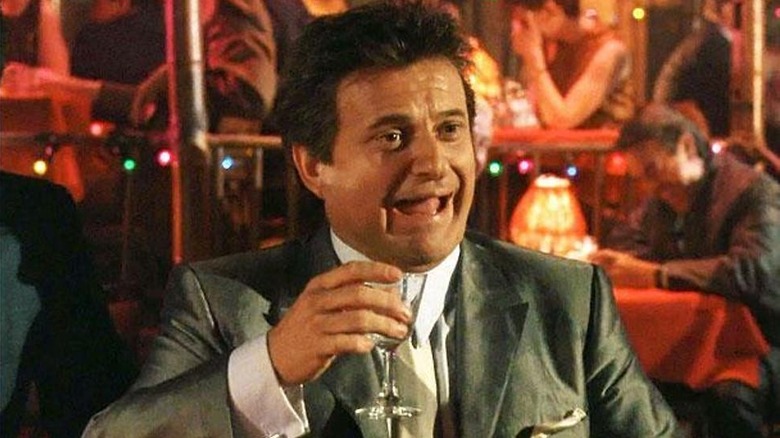Is Goodfellas Based On A True Story?
"Goodfellas" is undoubtedly one of the greatest Mafia films of all time. Charting the rise and fall of mobster Henry Hill, Martin Scorcese's glimpse into the life of a wise guy gave average Joes everywhere an idea of the dangers and drama associated with organized crime. The film's ending, rounded off by the age-old imagery of a gun being fired at the audience, sells the point the hardest. Being a mafioso may look fun. It may make you rich and bring you prestige. You may even get some serious connections with some bona fide crime bosses, but it'll never make you safe. Anyone can get whacked; you just have to pray you're luckier than the other guy.
Still, "Goodfellas" is just a movie. It's not a 100% accurate portrayal of the life of a mafioso — or so you may think. While it's far from being a 1:1 biography, "Goodfellas" is based on "Wiseguy: Life in a Mafia Family," the biography of the real-world Henry Hill by author Nicholas Pileggi. Hill was a real person, and many of his exploits were adapted somewhat faithfully into the fabric of "Goodfellas." The same can be said for Hill's associates (whose names were changed for the movie), who were all henchmen for the Lucchese family, one of New York's most powerful criminal organizations. But while "Goodfellas" was based on a true story, how much is fact, and how much is fiction?
Goodfellas gets the basics right, but changes many details
When it comes to the very basic details of Hill's life, "Goodfellas" does have a pretty good track record. Hill (played by Ray Liotta in the film) did become connected to the Luccheses when he was around 13 years old, and continued working on and off for the family until 1980 when he entered the Witness Protection Program. On top of that, Hill's involvement in the 1978 John F. Kennedy International Airport heist is a true story. However, some of the details are fudged, according to NPR.
This formula ostensibly applies to the entirety of "Goodfellas." For many films based on a true story, the filmmakers alter minor details — for example, Hill is portrayed in the movie as having two daughters, but in real life, he had a son and daughter with his first wife Karen. The movie also hyperbolized certain dramatic aspects and invented situations to make the whole story more entertaining. For instance, "Goodfellas" completely omits Hill's brief stint in the military (via The New York Times). On top of that, Tommy DeVito's (Joe Pesci) iconic "are you calling me funny?" sequence never actually happened. In the end, "Goodfellas" is just another case of real-life events being mythologized into good stories for the purposes of entertainment.

